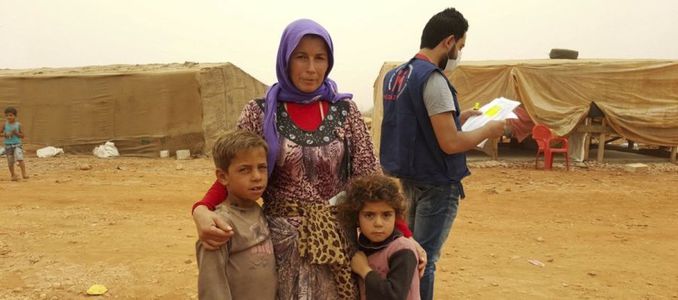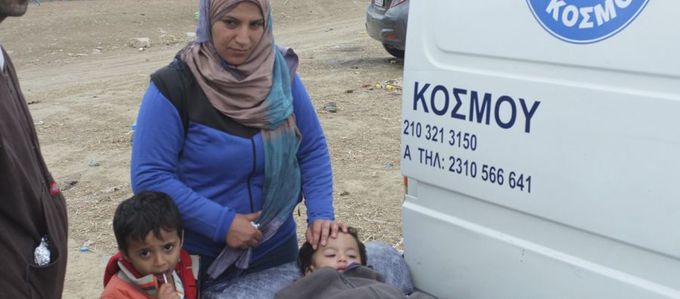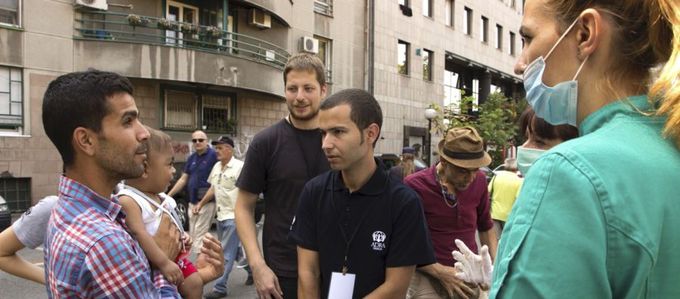
Refugee aid in Europe starts well before refugees reach their country of refuge. After all, the need is no less dire on the travel routes or in their homeland. Even here the New Apostolic Church is trying to do its part to reach out as far as possible to the refugees.
Some four million people have taken refuge from Syria alone, relates the NAC Switzerland on its website. Thousands of people have lost their lives on the way. The refugee camps are filled to overcapacity. There are shortages of everything: food, accommodations, clothing, hygiene. “The situation on the ground is worrying,” says Manolo Caviezel from his work experiences on the Serbian-Hungarian border. “The refugees come to the border, have not slept, are ill or injured, hungry and thirsty, and often also traumatized.”
At work all around Syria
Manolo Caviezel is the project chair of Swiss Solidarity, a Swiss organization that manages emergency aid projects for refugees close to their countries of origin or along the way—approximately along the so-called Balkan route. The New Apostolic Church Switzerland is providing support to this effort: it recently made 100,000 francs available for immediate aid measures alone.
Rather than only benefitting refugees in European reception centres, this money is already intended to benefit refugees on their route and, above all, in the countries surrounding Syria. So it is that the Swiss District Church is once again following the approach of providing help on site, just as it had done previously with its aid agency NAK-Humanitas. Among other things, this institution donated 25,000 francs for a project dedicated to helping children who are living in Syrian refugee camps.
A network of tried and proven helpers
Swiss Solidarity is a charitable institution that collects donations for humanitarian activities and passes them along to a group of 25 established Swiss aid agencies that work together. These partners help distribute foodstuffs, medicines, clothing, and tents on the ground, and also provide psychological support for refugees of war. These organizations are active in reception centres in Macedonia, Serbia, Greece, and Italy. The donations flow directly to Syria and to bordering countries such as Jordan, Lebanon, and Iraq.
Helping along on site—this is also the principle followed by German aid agencies. For example, NAK-karitativ is providing a donation in support of a transit centre in Serbia near the border with Hungary. There the organization Help – Hilfe zur Selbsthilfe e.V. is supporting an initiative of politicians and other prominent individuals from Germany to provide some 700 refugees with foodstuffs and toiletries.












